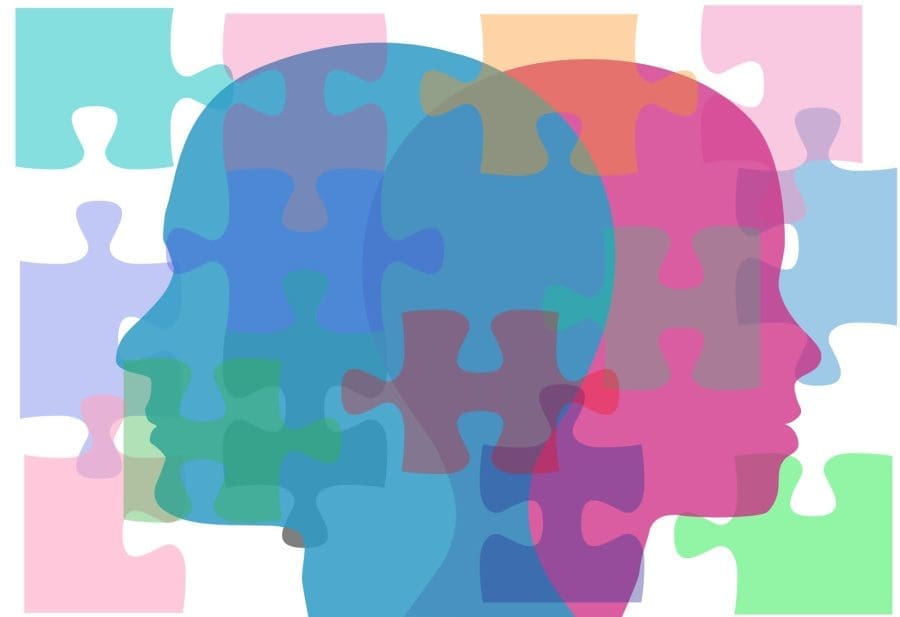Why is mental health important? This is a smart question to ask in today’s world where mental health is becoming more prominent, but there is still a stigma associated with mental illness.
Mental health is something you can’t see, and it’s easy to think you simply need to suck it up and get over it. It’s not like a broken leg or other health conditions that can very clearly be identified and treated, which makes it easy to ignore.
However, health is important at every stage of life, and every kind of health is important no matter what your age. That includes your mental health.
Contents
Exactly What Is Mental Health?


The first step in answering, “Why is mental health important?” is understanding exactly what mental health is. As defined by the World Health Organization, mental health is:
“A state of well-being in which an individual realizes his or her own abilities, can cope with the normal stresses of life, can work productively, and is able to make a contribution to his or her community.”
In short, mental health can be related to an absence of mental disorders, but it goes beyond that. Emotional, psychological, and social well-being involves the ability to thrive, which includes being able to work through stressful situations and realize your full potential.
If you’re struggling with your mental health, it could be due to something like a stressful life situation, but it could be due to various mental illnesses. A few common disorders include:
- Anxiety disorders, like generalized anxiety disorder
- Mood disorders, like major depression
- Schizophrenic disorders
Areas of Your Life That Mental Health Affects
Whether you think you have a diagnosable disorder or you simply feel like the circumstances of your life are making it difficult for you to handle stress, it’s important to pay attention to your mental health because it can greatly affect nearly every area of your life.
Social isolation can greatly affect your mental health, but poor mental health can also cause you to isolate yourself, which in turn can cause your mental health to get worse.
There’s also a strong connection between mental illness and drug dependence, especially when it comes to depression and alcohol. You’re more likely to drink if you have depression, but you’re also more likely to develop depression if you develop a dependence on alcohol.
The mind body connection is strong, which is why poor mental health can cause physical health problems. For example, you’re more likely to develop heart disease when you suffer from a mood or anxiety disorder. Chronic stress can affect your mental health, even in the absence of another mental illness, and it can contribute to poor heart health as well.
Of course, poor mental health can also make you enjoy life less. For example, it can make it nearly impossible for you to handle even simple stress, like accidentally dropping a glass on the floor, and it can cause your personal relationships to deteriorate.
Ways to Get Help if You Have Poor Mental Health


Mental health is something you have to maintain on a regular basis. That includes doing self-care activities that make you feel and act like yourself. For some, that might mean hanging out with friends, while another person may find that relaxing in a long bath is the best way to combat stress.
However, if you develop poor mental health, and especially if you think your poor mental health has morphed into a full-blown disorder, these strategies won’t work. Instead, seeking help from a health care professional is important. At Baton Rouge Behavioral Health, we offer a variety of programs and services that target your specific challenges so you can regain your mental health.
A treatment program can help you heal your mind, which in turn, can help you tackle other health issues you may be facing. Our programs include:
- Individual counseling
- Daily interaction with therapists
- Friendly, experienced caretakers
- Nutrition education
- Group counseling and peer support
- Reestablishing communication skills
In addition, we offer relapse prevention services for those who are also experiencing an addiction, as well as crisis care services if your mental health has gotten so bad that you’re considering suicide.
It never hurts to reach out to a member of the Baton Rouge Behavioral Hospital team. We can help you answer the question, “Why is mental health important?” in a way that’s personal to you, we can help you determine what kind of help is best in your situation, and we can tell you more about our programs and services. Call 225-300-8470 to speak with a member of our team today, or fill out our online form.















